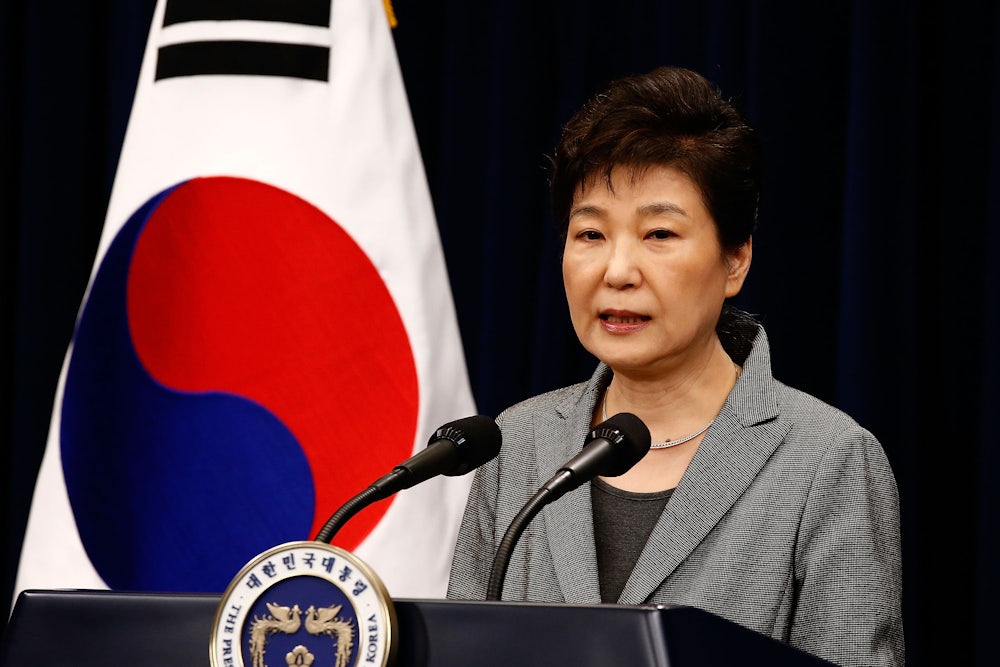Following the ouster of South Korean President Park Geun-hye, the culmination of a colorful corruption scandal that included nepotism, corruption, and shamanic rituals to communicate with the dead, Americans want to know a little more about the process for peacefully removing a leader.
Park’s fall is being upheld as an example of democracy in action. “The scandal holds some important lessons for how impeachment can take place in a political culture deeply dominated by partisanship,” Noah Feldman wrote in Bloomberg View, in a column titled “South Korea Does Impeachment Right.” Even BBC Dad Robert Kelly called it a “triumph of democracy,” before his yellow-sweatered daughter rolled into the room and stole the show.
Feldman argued that the process was successful for three reasons: relatively peaceful protests, condemnation from Park’s peers, and a smooth government process already in place. The decision by South Korea’s Constitutional Court was “all about the people and the Constitution,” wrote The Washington Post’s Christian Caryl. “The agility to make the hard decisions and hand off the baton without a bloody coup is a sign of strength that distinguishes democracy from dictatorship,” the Post’s editorial board wrote. Some Americans are wondering whether their country might be able to follow suit.
BBC: "South Korea's Park leaves presidential palace after impeachment."
— John Nichols (@NicholsUprising) March 12, 2017
South Korea's Constitution works.
Does ours?https://t.co/j6mVYHTsJm
But at CNN, Euny Hong argued that the two governments are simply too different for useful comparison. She noted: “By U.S. legal standards, Park’s impeachment is peculiar in that she was ousted before even being fully investigated.” One important part of Park’s removal was the lack of support from her own party. This isn’t the case with Trump, who has increasingly won over even those in the “Never Trump” camp.
Probably the closest commonality between the two countries is the peaceful mass demonstrations. Millions of people protested Park, reminiscent of the many peaceful protests that have already taken place in response to Trump’s presidency, such as the Women’s March on Washington and airport protests over the Muslim ban. Here’s to hoping the commonalities continue.
